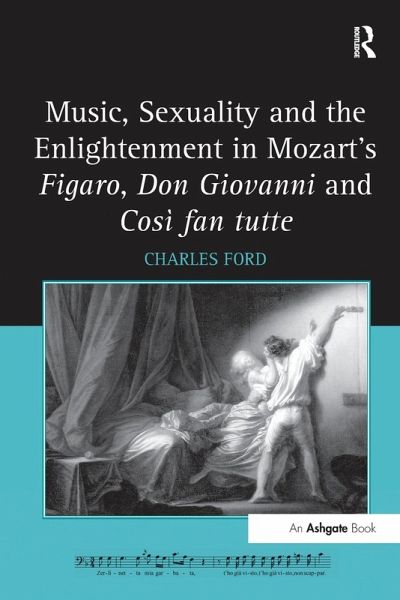
Music, Sexuality and the Enlightenment in Mozart's Figaro, Don Giovanni and Così fan tutte
Versandkostenfrei!
Versandfertig in 1-2 Wochen
67,99 €
inkl. MwSt.
Weitere Ausgaben:

PAYBACK Punkte
34 °P sammeln!
This analytical study explains how Mozart's music for Le Nozze di Figaro, Don Giovanni and Così fan tutte 'sounds' the intentions of Da Ponte's characters and their relationships with one another. Mozart did not merely interpret Da Ponte's characterisations but lent them temporal, musical forms. Charles Ford's analysis presents a new method by which to relate the music of the operas to the thinking of the European Enlightenment, involving close readings of late eighteenth-century understandings of 'man' and nature, self and other, morality and transgression, and gendered identities and sexu...
This analytical study explains how Mozart's music for Le Nozze di Figaro, Don Giovanni and Così fan tutte 'sounds' the intentions of Da Ponte's characters and their relationships with one another. Mozart did not merely interpret Da Ponte's characterisations but lent them temporal, musical forms. Charles Ford's analysis presents a new method by which to relate the music of the operas to the thinking of the European Enlightenment, involving close readings of late eighteenth-century understandings of 'man' and nature, self and other, morality and transgression, and gendered identities and sexuality.




